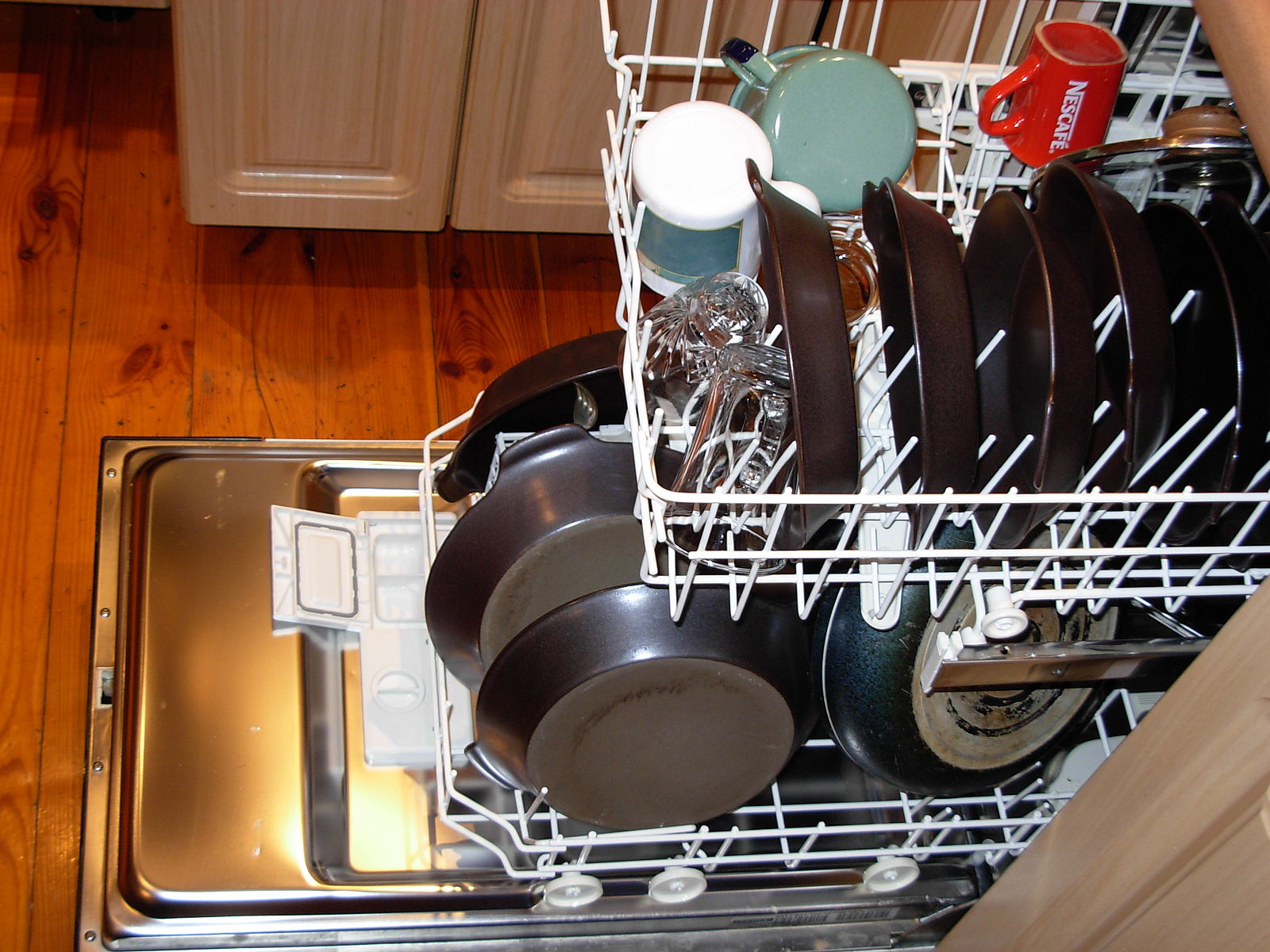 (412) 364-9114
(412) 364-9114

When your dishwasher refuses to drain, there are a variety of issues that could be the cause. Don’t panic! If you’re trying to save money, you may be able to fix the issue yourself with a little troubleshooting.
Your owner’s manual is your best friend in times like this. Look through the owner’s manual for troubleshooting ideas, and if you decide to try to repair your dishwasher personally, use this book as a guide to show you where the different parts of the dishwasher are located.
Your dishwasher operates by flushing food particles down pipes and through filters, and over time that food can build up, eventually creating a clog. This is why clogs are such a common reason for standing water in your dishwasher.
Look through your owner’s manual to find the filters, traps, hoses and pipes. Remove these parts one by one and clean them thoroughly with hot water and mild soap. You may need a scrub brush or small tooth brush for the filters and traps. Once these parts have been cleaned, put them back carefully in your dishwasher and run the dishwasher with hot water. Do not run dirty dishes in the dish washer without confirming first that it is draining properly!

The float is a device in your dishwasher that tells the dishwasher how much water is in the unit, and when to drain. Your dishwasher’s float can become stuck when food, silverware and other objects become lodged in its parts. Look inside your dishwasher for a little device nestled in the corner of the dishwasher, or a plastic piece shaped like a hat on the bottom of the dishwasher.
Check that the float moves up and down easily. If possible, check the float for food that may be stopping it from moving appropriately. If the float is broken for whatever reason, you will need to get a replacement part installed by a professional.
Your garbage disposal, dishwasher and sink are all linked in various ways. If you’ve recently installed a garbage disposal, or if you have a clog elsewhere in your kitchen, this could be the source of your trouble.
In addition, your dishwasher relies on a motor to help it drain. If the motor in your dishwasher is experiencing an issue, then you will need to seek professional help for your unit.
You can prevent issues like this in the future through proper maintenance and care. Food can become lodged in a variety of places in your dishwasher, which can create all manner of problems. Remember to rinse big food particles from your dishes before putting them through the dishwasher. You can save water by using a rubber food scraper to remove the worst of the food and scrape it directly into your garbage can. Clean your dishwasher regularly by running it empty, without dishes, and follow the maintenance tips in your owner’s manual.
Know when to turn to a professional for help. Call a plumber you trust to repair your unit. If your dishwasher is relatively new, it may still be under warranty. Call the company you bought the unit from for more information.
Not sure who to trust with this kind of repair? A phone call to the manufacturer, or a visit to the manufacturer’s website, may yield a list of local repair people who deal with your type of dishwasher. The company you bought the unit from may also do repairs.
Finally, don’t forget about your home warranty, if you have such a policy. If you recently bought your home, you may have gotten a home warranty policy to cover issues like this. Call your home warranty company to find out if this is something covered under your policy.